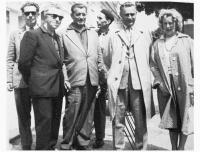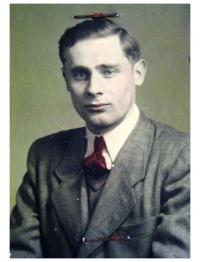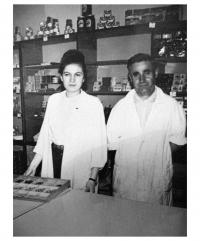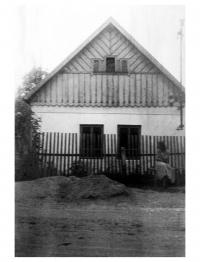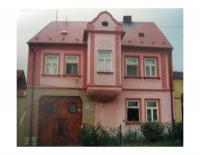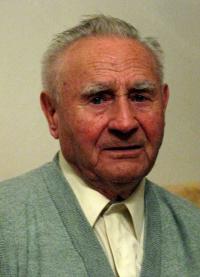Religion is dearer to me than their politics.

Download image
Miloslav Benda was born on October 8, 1919 in Jelenice near Mělník as the youngest one of nine children. His father was a bricklayer. Miloslav was trained as a sales assistant in a wholesale store in Mělník where he also worked for some time. Later he opened his own shop. As a young man, he established a local branch of the Catholic youth organization and began organizing cultural and sports events with national themes. During the Prague Uprising, he joined Russian soldiers and defended the Řepín village which was the center of the local resistance and was attacked by the German army. After the war, he almost lost the job at his shop. He decided to move to Ustí nad Labem, to the then empty Sudetenland where he was supposed to get a new shop. He wasn’t able to open it due to the reluctance of the communist officials. He finally settled down in western Bohemia, in Prostiboř. He opened a new shop, married a woman whose family had come from Volhynia and they had two daughters. After 1948 he got into several minor conflicts with the communist party. First he offered his house to a meeting of the People’s Party, then he refused to take part in the local municipal elections. At the public municipality meetings he twice stood up to protest against communist officials, who were trying to justify actions of the party after February 1948 and spoke against Czechoslovak legionaries and president Beneš. In 1950, he was arrested and sentenced to half a year in prison by the local municipal court for allegedly endangering the public by withholding food supplies, dissemination of false information, and illegal possesion of weapons. Part of his property was seized and he also had to pay a large fine. He was transfered to Bory and to Pradubice where he served the major part of his sentence, which he completed in the Vojna labor camp near Příbram. Part of his sentence was pardoned but he had to work in the mines after his return. He had to abandon mining due to health issues and worked in several job positions, the longest of which was as a chief coordinator of the Jednota grocery shops and as the head of the army canteen at the barracks in Bor u Tachova-Vysočany. Presently, he lives with his family in Tachov.
